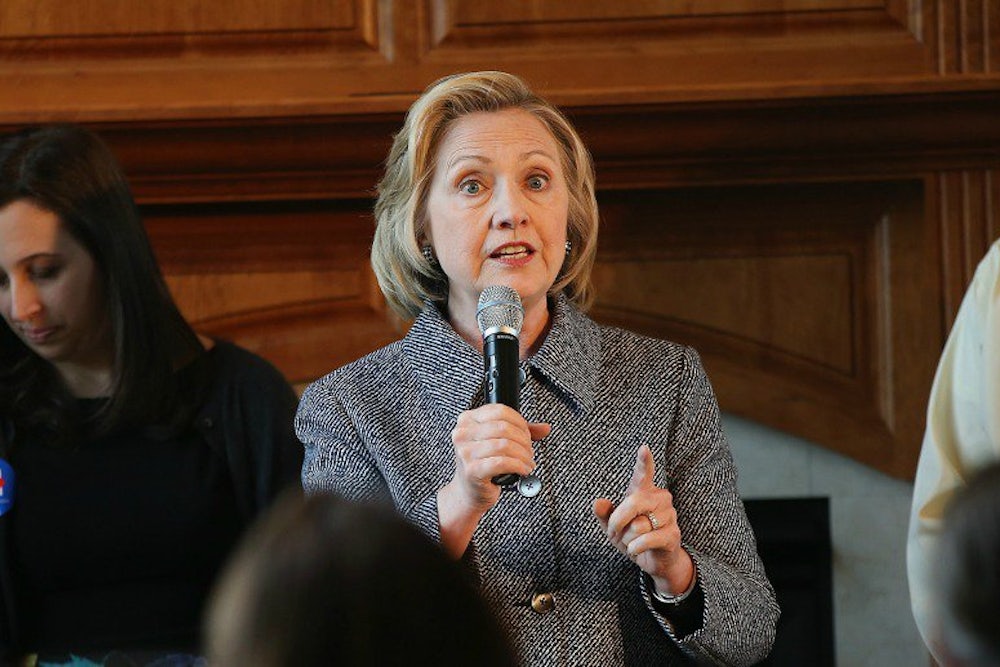Hillary Clinton has done little more than promise to take climate change seriously in her presidential campaign, communicated mostly through assurances from her adviser, John Podesta, that “she will move forward with an aggressive program." On Thursday, we got our first two clues what that might look like.
In an op-ed for Iowa newspaper The Gazette, Clinton emphasized her support for clean energy, calling out those “who want to keep the deck stacked for the fuels of the past” (a dig that applies to most of the Republican field). With a clear eye on the Iowa caucuses, she says it’s important to improve, not scrap, the Renewable Fuel Standard (RFS), which requires a minimum blend of biofuels in gasoline. “We have to get the RFS back on track in a way that provides investors with the certainty they need, protects consumers, improves access to E15, E85 and biodiesel blends, and effectively drives the development of cellulosic and other advanced biofuels," she writes. This is an issue that splits Democrats and environmentalists, who debate whether biofuels do much good for the climate, but it is a big deal for Iowa, where corn production for ethanol dominates the state economy. As senator, Clinton opposed it, though she did change her position when she ran for president in 2008.
Biofuels aren’t exactly on the top of environmentalists’ list when they express concerns about Clinton’s commitment to climate change. Most often, activists worry about how she views the Keystone XL pipeline, which would carry tar sands crude oil from Canada to the Gulf of Mexico. Clinton has mostly stayed silent on this issue, just once saying she was "inclined" to approve as secretary of state.
Podesta—insisting this was his personal view—spoke toThe Guardian, telling them that he thinks Cananda should do more to curb its greenhouse gas emissions ahead of international talks for a climate deal. “I think that there is a C02 premium on oil that is coming out of the oil sands and I think that has to be offset through other policies that they need to implement, or else that is a strategy that is likely to result in excessive emissions,” he said. Podesta said he hasn’t “seen that forthcoming from the Canadians at this particular stage." This isn't outright disapproval of the tar sands or the pipeline, but Clinton might change a few minds on her commitment if she decides to adopt Podesta’s view.
